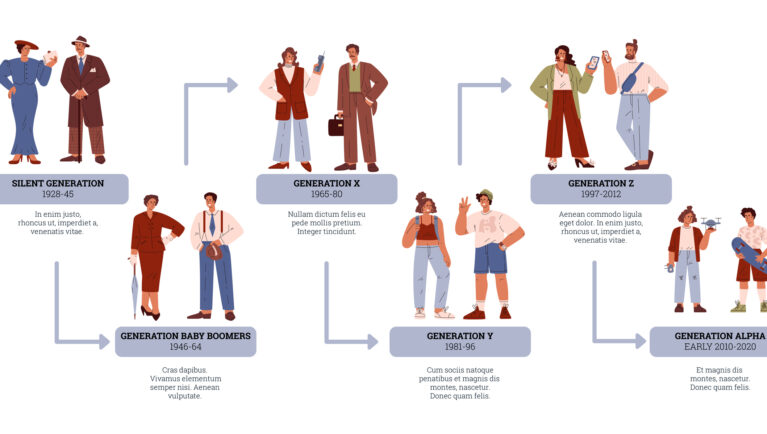
“Consumer is king” is a motto well known by all market operators and of proven validity. It is probably time to update it to “New consumer is king”.
In the food market, and not only, the new generation, called Generation Alpha, is arriving, or rather has already arrived. After the Millennials, or Generation Y, and Generation Z, here are those who were born entirely in the second millennium. Today they are children and teenagers, and around 2030, a fateful year for the objectives of the European Green Deal and the UN on environment and nutrition, they will start to be adults.
The kids of the latest generation are also called screenagers, a neologism that well represents their absolute and natural familiarity with the screens of smart phones, tablets and PCs, with which they live in a sort of perpetual symbiosis, at least as far as the countries with more developed economies are concerned. This lifestyle also results in a series of possible consequences on physical health, such as obesity and allergies, while events such as Covid and the ongoing conflicts could have caused psychological trauma to varying degrees.
A New Scenario on the Markets
Generation Alpha is being studied by operators in the food market. The great interest with which it is followed derives from the strong influence that the youngest consumers are already beginning to exert. According to food futurist Tony Hunter, these will be 2 billion by the end of 2024, with a purchasing power that within a few years could reach 5,000 billion euros, as hypothesized by agronomist Leo Bertozzi, a specialist in the field.
Therefore, it will be the Alphas who decide which food will be consumed in the near future, in the short and medium term.

The previous generation, made up of 15-25-year olds, already constitutes a significant portion of current consumers. It has a strong technological orientation also when it comes to food.
The interest of these young people is mainly focused on some objectives: 1) alternative proteins, produced from vegetables or whey, or even synthetic; 2) food traceability, also with the use of artificial intelligence, see blockchain, for a control from the field to the plate; 3) the sustainability of food production, but also of its packaging; 4) healthy products; 5) affordable prices. It is therefore to be expected that the most recent generation will follow in the footsteps of its older brothers, updating their choices with significant innovations.
A Look into the Future
Even though we know that many of the youngest representatives of Gen Alpha are babies or toddlers, it is already possible to draw a fairly well-founded hypothesis of the trends that these consumers will carry forward in the coming years, also through the testimonies of their parents.
One of the priorities of at least a third of the very young is plant-based food, such as oat milk or hamburgers and cheeses made from legumes, according to a recent survey by Datassential. However, surprise! only 7% declare themselves vegan and a few more vegetarians. The preference for wholesome foods is confirmed. Many parents are finally directing their children to a limited use of sweets and sugary drinks, which constitutes an important reversal of the trend.
Most are sensitized to environmental problems, and this has a significant impact, causing a preference for sustainably produced foods, therefore in line with previous generations. More than these, however, Alphas are interested in those brands that communicate with languages and techniques familiar to them. They appreciate ethical messages, centred on inclusiveness, equality, attentiveness to the person and the planet. Particular attention is paid to labels on packaging. Ingredients and their origin must be clearly indicated. Lack of transparency can mean the commercial failure of the product.
The environment where the youngest communicate is the digital one and it is there that they should be sought and reached. Over 80% are inspired in their food choices by YouTube or other social networks. This is consistent with the fact that almost half of Alphas handled a tablet before the age of 6 and owned a smartphone around the age of 10.
No doubt that the next few years will be challenging and exciting for marketing managers.
Franco Brazzabeni is commercial and marketing consultant in the international agribusiness, Member of the Board of Assosementi and of ISF Groups and writes a blog on www.agrinotes.it.
The post New Consumers for New Markets appeared first on Seed World.



